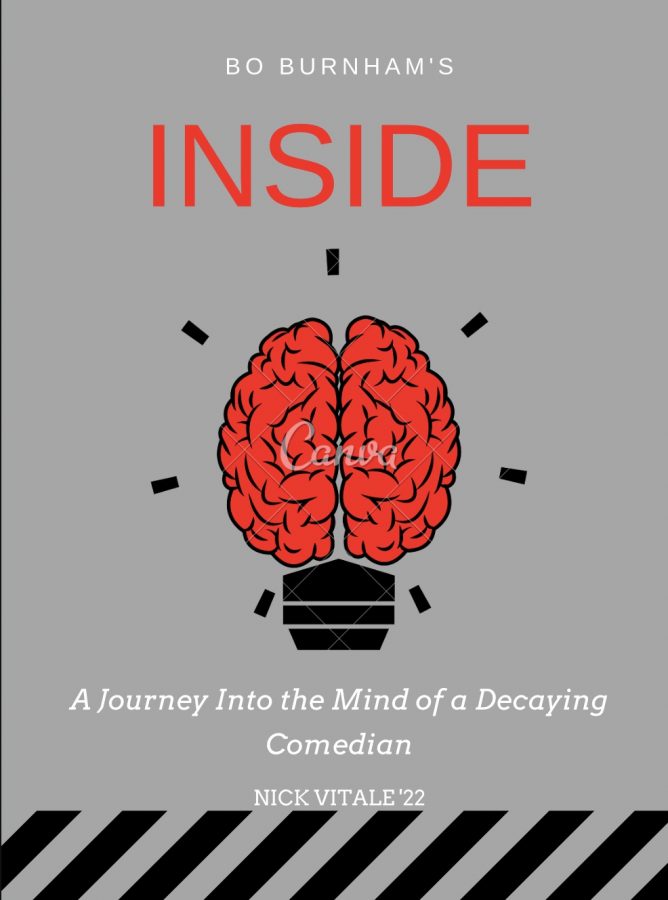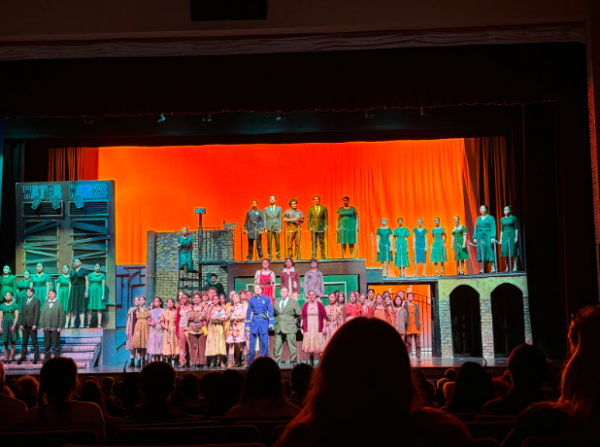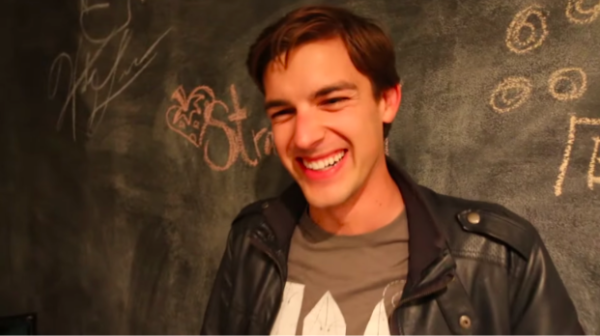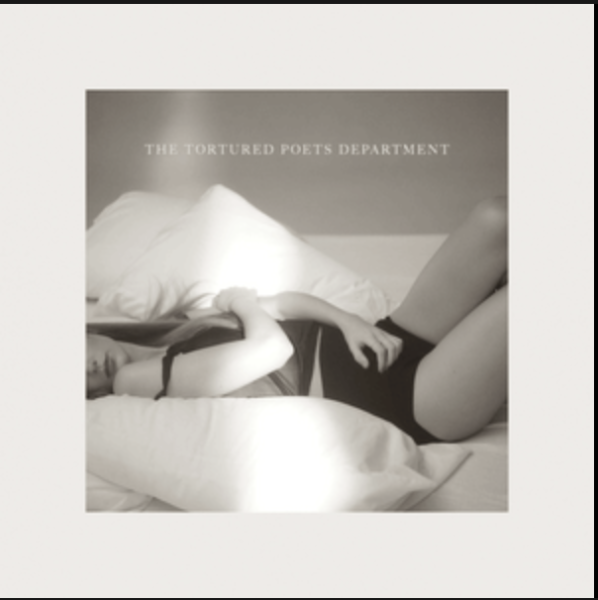Bo Burham’s Inside is a Journey into the Mind of a Decaying Comedian
While Bo Burnham’s quarantine special isn’t his funniest work, it’s his magnum opus, and shows how the pandemic affected people who rely on crowds for a living.
Should we be joking at a time like this?
Bo Burnham begs the question in his 2021 musical comedy special: Inside. Shot over the course of last year, Burnham sets out to do the nearly impossible: turn a global pandemic into comedic gold. Through his exploration of themes ranging from awkward FaceTime calls to feelings of depression and self worthlessness, Burnham reveals more about his own psyche than the title and branding would suggest.
The special admittedly starts out slow. Many of the songs from the first act consist of light social commentary, tackling subjects like the superficiality of social media in “White Woman’s Instagram” or the obstacles of pandemic-era communication in “FaceTime with my Mom (Tonight).”
However, the one thing that seems to stand out amongst these songs is their lack of comedy. They aren’t entirely devoid of laughter, but they just don’t stack up to some of Bo’s edgier, previous works. Once the halfway mark strikes, however, Burnham certainly amps up his game.
As the clock strikes midnight on Burnham’s thirtieth birthday, the severity of his environment really sinks in. What was just a comedy special minutes ago transforms itself into a dramatic analysis of a man struggling to find art in a time of darkness.
Burnham has always excelled at exploring deeper themes in his work. The finales of his other specials, What and Make Happy, both examine his feelings on the way his fans perceive him compared to his actual personality, but Inside takes it to a new level. Songs like “All Eyes on Me” and “That Funny Feeling” end with chants that echo the climax of the 1973 film Soylent Green—a tragic hero trying to warn his society of a terrifying yet inevitable doom after it’s most likely too late (In Burnham’s case, the dangers of your own mind).
Other songs convey a different message, such as “Welcome to the Internet,” which stresses the diminishing effect that social media and the internet can have on teenagers. The line “Apathy’s a tragedy and boredom is a crime” mirrors a truth that most Gen Z’ers subconsciously live by.
Inside is certainly not Bo’s funniest work; I think it’s even fair to call it his least funny special to date. However, this makes it all the more stunning, as we see a side of him that usually isn’t even considered.
The visual of a bearded, disheveled Burnham bursting into tears mid-joke, all while we know he’s been stuck in a single room for months, creates a claustrophobic nightmare for the viewer. Yet somehow, we can’t manage to look away from it.
I don’t think it’s a stretch to consider Inside as Bo Burnham’s magnum opus. Personally, it has stuck with me more than any other piece of art in the last year and a half, despite its branding as a stand-up comedy special.
If you’re going to watch this special, be cautious of what you’re stepping into. Chances are you’ll love it just as much as I did, but if you’re going through tough times, I’d recommend waiting until everything is cleared up because Inside certainly won’t help your mental state.
So I ask again, should we be joking at a time like this? In Bo Burnham’s opinion, probably not. Nevertheless, he manages to create an experimental piece of filmmaking that will be considered a time capsule for generations to come.
















Teresa Romeo • Dec 30, 2021 at 5:56 PM
Excellent article!